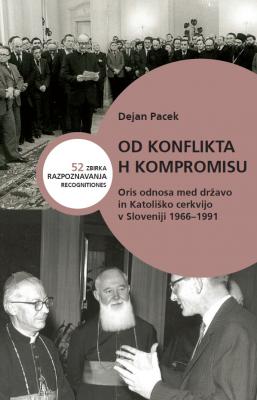From Conflict to Compromise: An outline of the relationship between the State and the Catholic Church in Slovenia 1966–1991
Keywords:
Church and State, Slovenia, Church historySynopsis
With the end of the Second World War and the takeover
of power by the Communist Party, a period of several years of lawlessness began for the Catholic Church in Yugoslavia, in which the revolutionary regime tried to put an end to its social power and influence and to its independence in relation to totalitarian power with many repressive measures – first and foremost with the court convictions of church representatives and the nationalization of church property. The anti-church activity of the state authorities in the first post-war years was primarily aimed at annihilating or at least significantly reducing the influence of the Holy See on the functioning of the Catholic Church in Yugoslavia, because due to the international dimension of the
church organization, the Communist Party, in its desire for a complete social monopoly, could not fully to subvert. The efforts of the communist authorities to subjugate the Catholic Church in Yugoslavia by establishing the so-called national Church, quickly
proved unsuccessful due to the determined opposition of the Yugoslav bishops. The regime therefore tried to cause a split between the bishops and priests and thereby break the unity of the Catholic Church by establishing puppet priestly patriotic associations, torn between loyalty to the Church and the regime, which, even after the failure of this policy, served for a long time as the main means of the policy of differentiation. The Yugoslav authorities saw the Holy See as the biggest obstacle in regulating relations between the state and the Catholic Church, especially when, with his support, the Yugoslav bishops banned the regime‘s priestly associations. The announcement that the
Archbishop of Zagreb Alojzije Stepinac, who was convicted in a staged trial, would be elevated to the cardinal honor, therefore served as a convenient excuse for the Belgrade to unilaterally sever diplomatic relations with the Holy See in December 1952.

Published
Print ISSN
License

This work is licensed under a Creative Commons Attribution-NonCommercial-NoDerivatives 4.0 International License.

